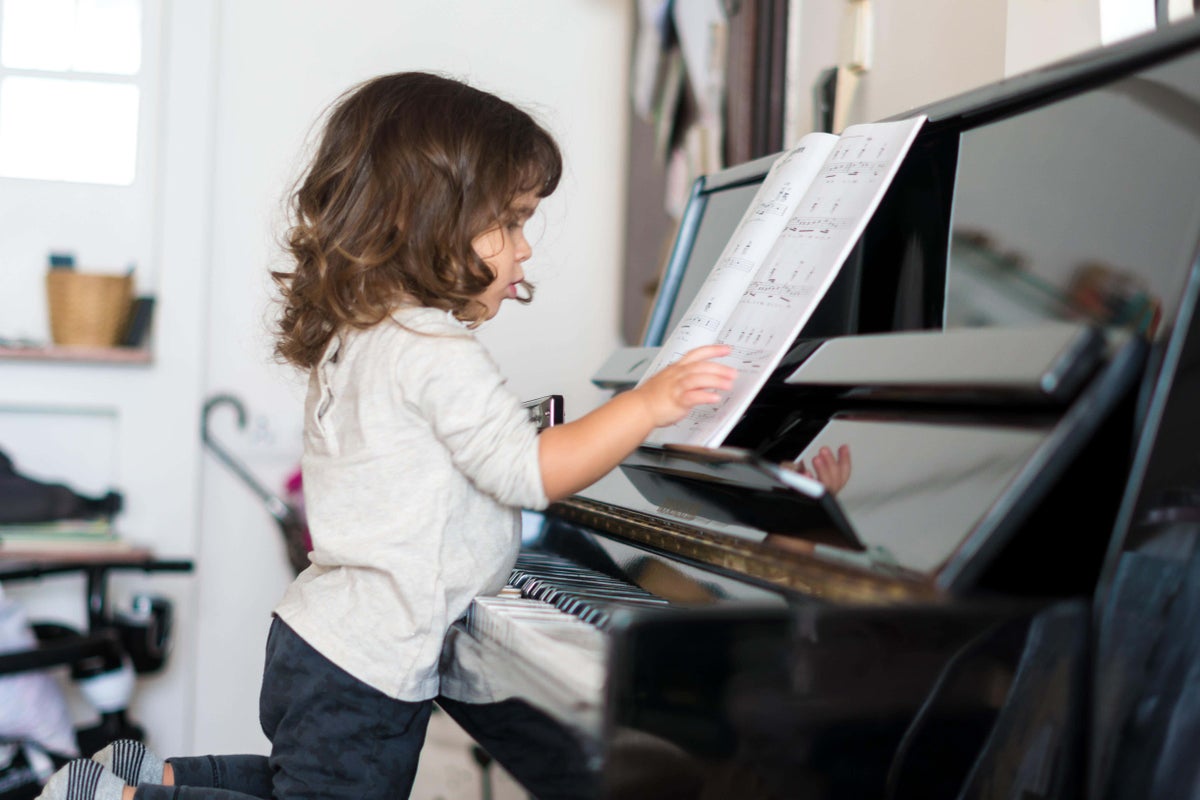Learning to play the piano ‘improves ability to process sights and sounds’

Playing the piano improves the brain’s ability to process sights and sounds, as well as reducing depression, anxiety and stress, according to a study.
Researchers at the University of Bath followed beginners who took lessons for an hour a week over an 11-week period.
The one-to-one lessons consisted of 20 minutes of finger exercises, followed by learning songs from a piano grade one exam list for 40 minutes.
We know that playing and listening to music often brings joy to our lives, but with this study we were interested in learning more about the direct effects a short period of music learning can have on our cognitive abilities
Dr Karin Petrini, University of Bath
Results published in the journal Nature Scientific Reports show those who learnt the piano improved their ability to process multisensory information – sight and sound.
They also had reduced depression, anxiety and stress scores after training.
Dr Karin Petrini, from the University of Bath’s Department of Psychology, said: “We know that playing and listening to music often brings joy to our lives, but with this study we were interested in learning more about the direct effects a short period of music learning can have on our cognitive abilities.
“Learning to play an instrument like the piano is a complex task; it requires a musician to read a score, generate movements and monitor the auditory and tactile feedback to adjust their further actions.
“In scientific terms, the process couples visual with auditory cues and results in a multisensory training for individuals.
“The findings from our study suggest that this has a significant, positive impact on how the brain processes audio-visual information even in adulthood when brain plasticity is reduced.”
In the randomised control study, 31 adults were assigned into either a music training, music listening or control group.
People with no prior musical experience or training were told to complete weekly one-hour sessions.
The intervention groups played music, while the control groups either listened to music or used the time to complete homework.
Tests showed those who took lessons showed an increased ability to process multisensory information, which extended beyond musical abilities.
With musical training, their audio-visual processing became accurate across other tasks, such as a test in which they were asked to determine whether sound and vision events occurred at the same time.
This was also the case for simple displays presenting flashes and beeps, and for more complex displays showing a person talking.
The improvement in processing multisensory information was not present for the music listening group or the non-music group in which participants studied or read.
The study is published in Nature Scientific Reports.
For all the latest Science News Click Here
For the latest news and updates, follow us on Google News.

